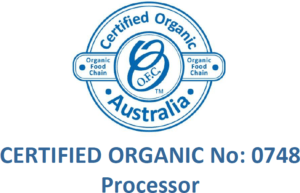1. Change your socks for refreshment. It’s an amazing trick. Bring a change of socks to work, and change your socks midway through the day (say, after lunch). You’ll be amazed at how much fresher you’ll feel.
2. Drink lots of quality water. Dehydration is a sinister cause of fatigue because it slowly creeps up on you. If you consistently drink less than 8 cups of water a day, you may be sluggish all the time. Get a 1-1.5litre water bottle. Your goal is to polish off 1-2 of those a day. Try it for a week and see if your general energy level increases.
3. Try to Work with your body’s clock. There is a natural ebb and flow of energy throughout the day. We start off sluggish after waking up, even after a solid 8 hours of sleep. Our energy peaks mid-morning, and it’s natural to want a siesta in the afternoon. We get a second spike of energy in the early evening, followed by our lowest energy point just before bedtime. Once you understand this natural rhythm of energy throughout the day, you can work on the important tasks during your peak hours and avoid early afternoon snooze fests (meetings).
4. Eat a satisfying breakfast but a lighter lunch. A heavy lunch, especially one with lots of carbs or fat (like a burger combo) will hit you as soon as you get back to the office. And it’ll be a sluggishness that lasts to the end of the day. Eat a big breakfast instead. Whey protein shakes are perfect. It provides the fuel you need for the day, at the time when your body needs it the most. Not only will you avoid the afternoon food coma, the big breakfast will make you more productive in the mornings.
5. Have an afternoon power snack. A small healthy snack that is low in sugar & has protein and/or fibre a couple hours after lunch helps you finish off the day strong. Some suggestions:
- mixed nuts
- natural yogurt or whey protein shake
- frozen or fresh berries or fruit
- trail mix…dried fruit and nuts
- muesli bar
6. Hit up the water cooler for inconsequential banter. A little midday gossip and random banter is a great pick-me-up for your tired mind. It works because it gets your mind on zero-stress thoughts for a while. The mental break for just a few minutes will revitalize you.
7. Eat lots of berries. Make sure the berries are blue, red, or purple in colour, as the colour comes from anthocyanins, which is a powerful antioxidant that boosts energy.
8. Colour therapy- Wear brighter colours. This trick is related to the mood you project to people, and the reciprocating mood they project towards you. If you wear dark, sombre colours, you may project a dark, sombre attitude, and people will usually respond to you in the same manner. If you wear bright, happy colours, you’ll get that attitude projected towards you, which will boost your own mood and energy levels.
9. Choose protein over fat or carbs. Foods with lean (low fat) protein help you feel fuller for longer. It also prevents blood sugar spikes, giving you more steady energy. Lean protein foods include fish and other seafood, lean pork, or chicken breasts (“white meat”).
10. Take a walk outside. Getting outside for some fresh air, a change of scenery, and a quick walk to get your blood going will do wonders for your mood and motivation. Seeing the sun is a signal to your body that it’s not bedtime yet.
11. Wake up at the same time every day. Including weekends, this sets your body clock. Otherwise, you’ll be wide awake when you should be asleep. Or worse, asleep when you should be awake (dozing off in a meeting is embarrassing). The key is to go to bed at the same time every night.
12. Flirt. It is fun, it’s harmless (keep it innocent), and it’s effective. Nothing quite gets the heart pumping like a little flirting, but beware of the office xmas party.
13. Use caffeine wisely. Coffee and caffeinated sodas can boost your alertness, but be careful about letting it be a habitual crutch. The temptation to drink more caffeine to get even more energy will be strong. Eventually you’ll be downing 5 double-shot espressos a day just to function. Drink coffee earlier in the day to avoid insomnia.
14. Avoid energy drinks. Energy drinks provide a near-instant hyperactivity boost, but they always result in a crash. Energy drinks are like energy credit cards – you’re spending future energy to get short-term energy. The resulting energy deficit gets worse until you crash.
15. Eat more soluble fibre. Soluble fibre is the kind that slows down the rate of absorption of sugars. It evens out your energy levels by preventing a sugar high and crash. ( insoluble fibre is the kind that prevents constipation.) Don’t worry too much about which kind of fibre you’re getting – they’re both good for you. Rotate more high soluble fibre foods like nuts, grains, fruits, plant matter (vegetables), beans, and oats into your diet.
16. Sniff some citrus. In addition to the Vitamin C, citrus scents (like orange, lemon and lime) stimulate alertness. So lather on some of that lemon scented lotion.
17. Get your Vitamin C. Get a daily dose of citrus fruits (orange juice in the morning) or a vitamin C tablet. Study after study shows the correlation between citric acid deficiency and chronic fatigue. Vitamin C also helps you absorb more nutrients from food.
18. Eat low glycemic (low or complex carb) foods. Trade in good, complex carbohydrates (low glycemic index) for the bad, simple carbs (sugar). Carbohydrates with a high glycemic index means the sugar is more easily digested by your body. That results in a spike in energy followed by a low-sugar crash.
High glycemic index foods to avoid include white bread, potato, and high sugar foods (like sodas). Low glycemic foods (the good carb foods) include fruits and vegetables, grains (whole wheat bread), low-carb foods (meats), and pasta.
19. Cover the B Vitamins. B vitamins cover a range of bodily functions, but most B vitamins are involved in the process of converting blood sugar into usable energy. To ensure you get the proper amount of B vitamins, eat a balanced diet.
20. Quit smoking. Ex-smokers frequently report an energy boost of 2-3 x when they quit smoking. Nicotine affects your sleep, so you don’t get as good a night’s sleep. That makes you cranky, frustrated and tired the next day, which leads to more smoking. It’s a vicious energy sapping cycle. Maybe a new years resolution?
21. Play to relax. Playing a game keeps your mind working (versus, say, watching TV), but doesn’t have any of the energy-sapping stresses of work. Go ahead and play that quick game
22. Eat smaller, more frequent meals. Snack throughout the day. By eating smaller but more frequent “meals”, you will maintain a steady dose of energy instead of experiencing food comas. Don’t snack on fatty and sugar laden junk food though. You may get a short 30 minute burst of hyper-alertness, but it’ll be quickly followed by a debilitating crash.
23. Enjoy a cup of tea. In a recent study, (University College London researchers) noted that drinking a cup of tea 4-6 time a day reduces stress hormone levels in your body. The study’s results suggest “drinking black tea may speed up our recovery from the daily stresses in life.”
24. Splash some water on your face. Just letting the cool water hit your face washes off the grime & stresses of the day. You could also jump in the pool or take a shower as showers stimulate the circulatory system & metabolism. Get wet to feel more energetic.
25. Stand up, stretch and take a couple of deep breaths. Stretch your arms, back, legs, and neck. Take a deep breath through your nose, hold it, and let it out slowly and forcefully. Repeat several times. This will take 30 seconds and will be an instant fix. When you sit back down, you’ll have the clear head & fresh feeling needed to power through the task at hand.


